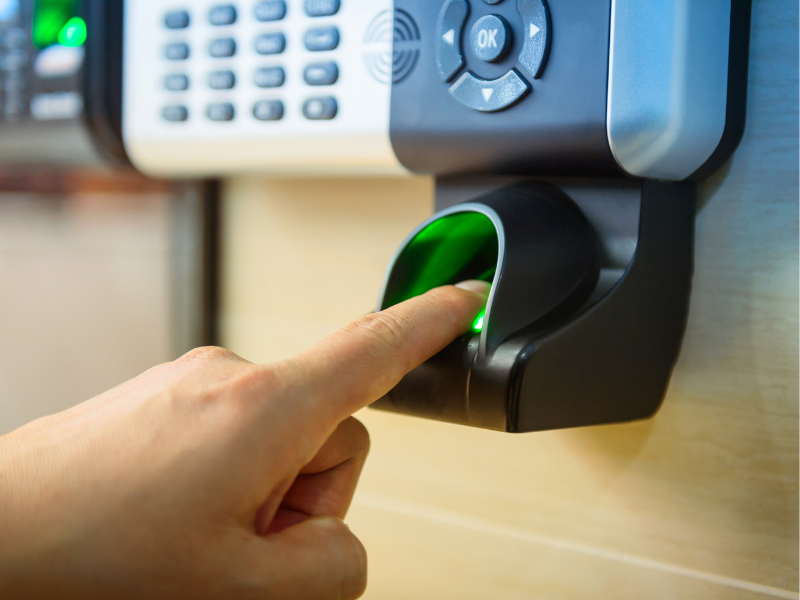HIPAA (Health Insurance Portability and Accountability Act) compliance is essential for healthcare providers to protect sensitive patient details and maintain data security. When discussing HIPAA regulations, the “double lock rule” is often mentioned in compliance with securing protected health information (PHI).
This article will explore the HIPAA double lock rule, its purpose in healthcare, and how it can be effectively implemented to enhance data security.
Table of Contents

What Is the HIPAA Double Lock Rule?
According to an article on HelpDeskSuites, the HIPAA double lock rule is not explicitly mentioned in HIPAA regulations. Instead, HIPAA requires that covered entities implement reasonable and appropriate security measures to protect PHI.
In HIPAA for Dummies: A Practitioner’s Guide, the authors suggest implementing two layers of physical locks to protect tangible and electronic PHI (ePHI). For instance, there should be a locked door to the file room, and inside it should be a locked filing cabinet. This concept of a double layer of protection is called the “double lock rule.”
Purpose of the double lock rule in healthcare
The double lock rule enhances data security and minimizes the risk of unauthorized access and PHI disclosure. Personal data is particularly vulnerable to cyberattacks and unintentional data breaches.
For instance, remote staff might access shared drives containing PHI on an unsecured public internet connection. By implementing additional layers of protection, healthcare providers can strengthen data security and demonstrate their commitment to protecting patient privacy.
Implementing the Double Lock Rule for Physical PHI Storage

Secure filing cabinets and storage rooms
Healthcare providers should always lock filing cabinets or containers for physical PHI storage. Moreover, these cabinets and containers should be secured in locked rooms and areas with limited access. Implement safeguards to ensure that only authorized personnel can retrieve specific information to accomplish their jobs.
Restricted access and key control
Strictly control access to rooms and other areas containing physical PHI. Healthcare providers can use keycards and biometric systems. Moreover, limit the distribution of keys and restrict access credentials to authorized staff. Utilize tools to verify each person’s identity (e.g., fingerprint and iris scanners) before they are allowed access to particular storage sites.
Double Lock Rule for Electronic PHI (ePHI) Storage
Data encryption and password protection
Using strong security measures to protect ePHI storage is crucial for all healthcare providers. Encryption adds an extra layer of protection by ensuring that data is unreadable to unauthorized individuals while stored and in transit. Additionally, create robust password policies. Change passwords regularly and use multifactor authentication (MFA) or two-factor authentication (2FA) to enhance ePHI security further.
Access controls and monitoring
Develop a robust access control system to protect ePHI. Healthcare providers should assign unique usernames and limit access based on staff roles, restricting access to only those whose job involves handling sensitive patient data. Plus, there should be an efficient way to monitor data exchange across healthcare systems and computer networks to detect and prevent suspicious activities.
In case of a data breach, immediately follow HIPAA protocols and report the incident to the Office for Civil Services (OCR) under the Department of Health and Human Services (HHS). Clients whose data have been compromised should also be informed of the extent of the breach and be advised on how to protect their data.
Training and Compliance for the Double Lock Rule

Staff education
HIPAA training for staff is crucial to implement the double lock rule and other security measures. Sometimes, unintentional data breaches occur because employees need help understanding the importance of data security. They should be well aware of the proper procedures for storing, accessing, and transmitting ePHI.
Regular audits and compliance checks
Once healthcare providers have HIPAA-compliant processes and technologies, they should conduct regular audits and compliance checks. These help maintain HIPAA compliance and identify any vulnerabilities in their security policies. Regular risk assessments also provide an opportunity to make adjustments and align workflows with the HIPAA double lock rule.
The Importance of the Double Lock Rule in HIPAA Compliance
Implementing the double lock rule goes beyond mere compliance. It signifies a commitment to maintain the privacy and security of the client’s PHI and ePHI. Adopting multiple layers of protection is the “gold standard” to reduce the risk of data breaches and unauthorized PHI disclosure to malicious actors. Not adhering to these standards exposes healthcare providers to lawsuits, reputational damage, and financial loss.
Minimizing the Risk of Data Breaches
The HIPAA double lock rule helps minimize data breaches due to external or internal factors. Sometimes, staff unintentionally leave their devices open. Other times, a patient data breach can happen when cybercriminals hack into unprotected ePHI storage. Implementing a double lock on both PHI and ePHI adds protection to sensitive patient files.
While not required under HIPAA rules, the HIPAA double lock rule is one of the best practices that healthcare providers can apply to maintain the trust of their clients and avoid breaking HIPAA Rules. By employing secure physical and electronic storage practices, training staff on the importance of the HIPAA double lock rule, and regularly assessing compliance, healthcare organizations can show their commitment to protecting patient privacy.
Applying the double lock rule strengthens HIPAA compliance efforts and cultivates trust between providers and patients.







